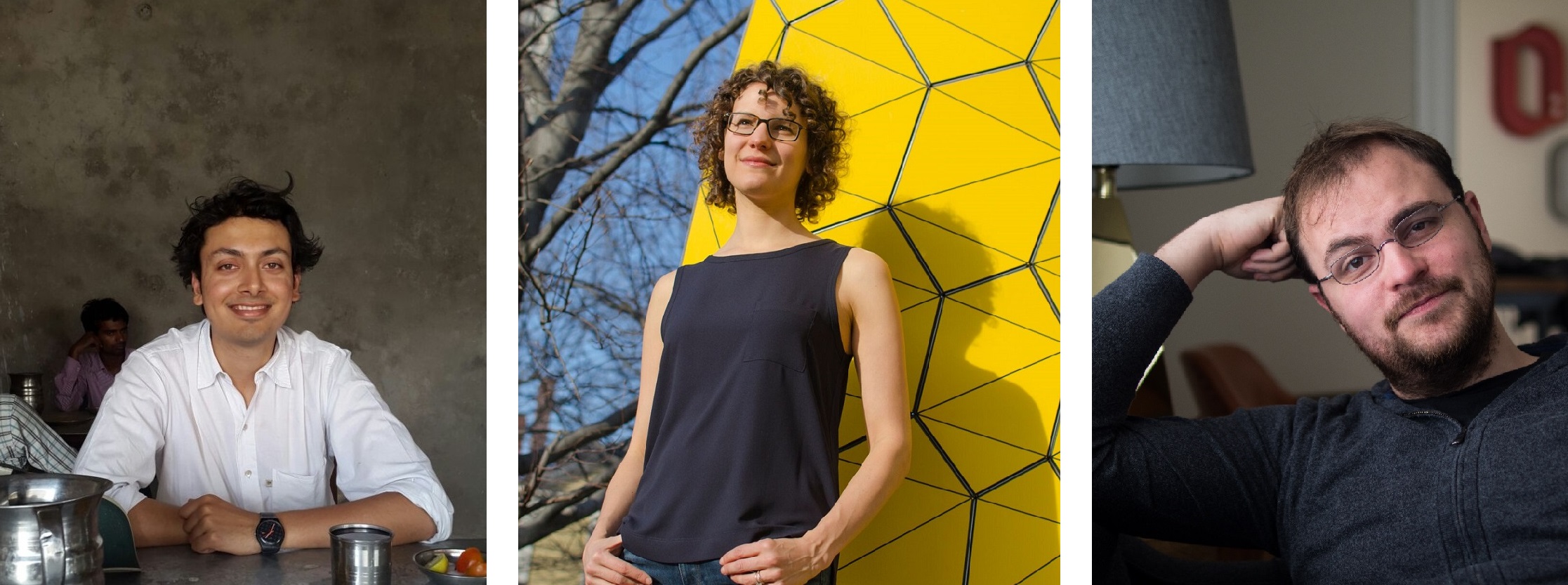June 26, 2017
UC Merced Political Science is delighted to announce three new tenure-track Assistant Professors who will join the faculty on July 1st, 2017. Their appointments will further build the teaching and research profile of the university.
Adi Dasgupta joins UC Merced from Stanford University, where he was a Shorenstein postdoctoral fellow, and Harvard University, where he received his Ph.D in Political Science. Dasgupta studies the political economy of development. His book project and articles examine the historical and organizational roots of why parties succeed or fail at incorporating new groups in democratizing societies. A second set of projects investigates the politics of public service delivery failure in developing countries, including a series of surveys in India. Dasgupta will teach Politics of Poverty and Prosperity (undergraduate), and Political Economy (graduate) in 2017-2018. For more information on Dasgupta’s work, see his website here.
Melissa Sands joins UC Merced from Harvard University, where she completed her Ph.D in Political Science. Sands studies the consequences of context on political and civic behavior. Her research shows that who and what we encounter as we go about our everyday lives affects the policies we support and how we interact with government. Specializing in causal inference, field experiments, and spatial/geographic analysis, she develops new methodological approaches to the study of social and physical context. Sands will teach Advanced Analysis of Political Data (undergraduate) and Advanced Causal Inference (graduate) in 2017-2018. For more information on Sands’ work, see her website here.
Daniel de Kadt joins UC Merced from the Massachusetts Institute of Technology, where he completed his Ph.D in Political Science. De Kadt studies political behaviour in young democracies. His current focus is on how ease of access to voting stations influences the decision to vote, and subsequently the macro-electorate. Other work addresses questions of vote choice and electoral politics. His secondary interest is in teaching, developing, and applying new methodologies for causal and statistical inference, specifically in developing democracies. De Kadt will teach Introduction to Comparative Politics (undergraduate) and Advanced Model-Based Inference (graduate) in 2017-2018. For more information on de Kadt’s work, see his website here.


